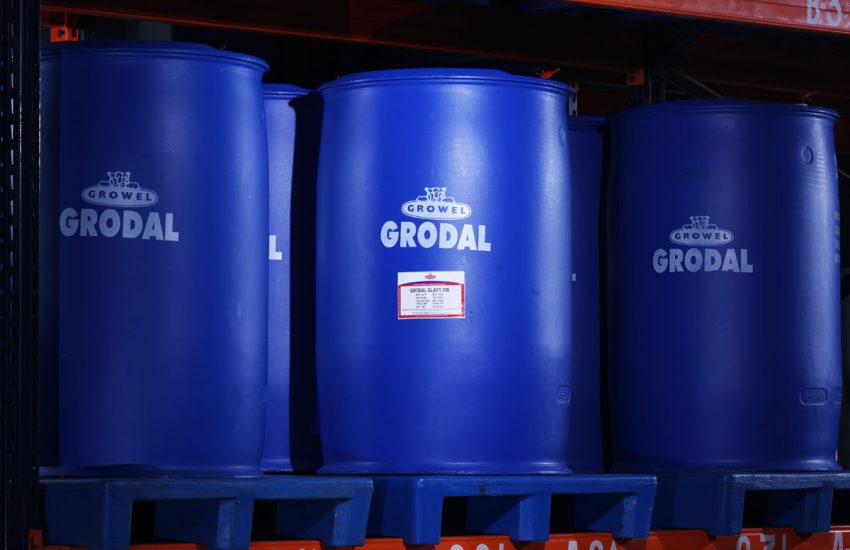In the early days of glass processing, water was used as a coolant and lubricant. However, the use of diamond-tipped tools in glass processing with only water as a coolant led to the following problems in glass grinding operations:
- Marked decrease in process efficiency
- Runaway cost escalation on account of rapid wear and tear of diamond tools.
- Extensive corrosion of plant & machinery
- Undesirable pH increase of the grinding solution
Due to the brittle nature of glass and the stresses of glass grinding, the coolant used to aid the grinding process has to fulfill a number of requirements. As an example, fine glass particles are produced during the grinding process which instead of settling at the bottom, remains suspended in the water thereby reducing the effectiveness of the water to act as a coolant. In addition, these glass particles had an abrasive effect during the operation, creating unacceptable scratches on the toughened glass.
Rising to the needs of the industry, Growel has specifically designed a high-performance grinding fluid/coolant- GRODAL GLASS 339 which now eliminates these problems.
GRODAL GLASS 339 is a synthetic coolant concentrate based on ester additives that are designed to cool and lubricate extreme machining operations on flat toughened glass such as edge grinding, drilling, milling, etc. Exceptional Bio-Stability permits operation with hard water up to 450 ppm. It keeps the tools clean and allows the glass powder to settle easily.
GRODAL GLASS 339 – APPLICATION GUIDELINES
Stir with water in the desired (usually 0.2% to 0.5%) ratio to a homogeneous solution.
For a higher lubricity ratio, it can be increased to 1 – 1.5%.
Special additives in the Grodal Glass 339 keeps the surfaces of the diamond tool sharp. This in turn maintains grinding performance and substantially reduces glass processing time. The absence of these vital additives would necessitate the frequent replacement of the diamond tool, thereby leading to an exponential rise in operation cost.
One of Grodal Glass 339’s many real-world application successes includes the case study of one of our key customers engaged in the manufacture of mobile phone scratch guard glass. Their organization was using an imported cutting fluid @ 2.5% concentration level resulting in their use of 140-150 liters of fluid daily. Upon switching to Grodal Glass 339 at 1.5% their consumption reduced to 80-90 liters daily. Our customers also reported a marked reduction in the amount of fuming they were experiencing during cutting operations. Advantages ranged from the locally available and as-needed supply of cutting fluid to the measurably superior performance of the Grodal Glass 339.



